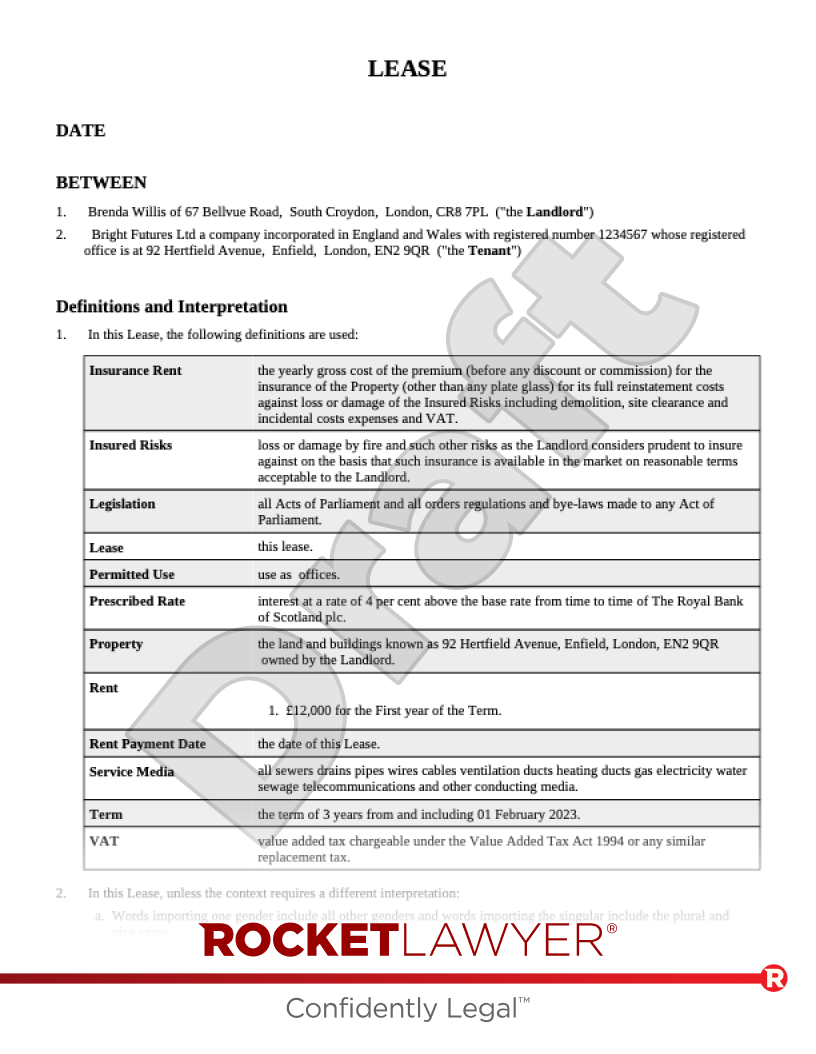What are tenants' repair obligations?
Commercial tenants are generally responsible for maintaining a rented property and for ensuring that, at the end of a Commercial lease, it is restored to an acceptable state. Any repairs that are required should generally be specified in the lease. However, most repair responsibilities that are not specified in the lease but affect the overall state of the property will fall to the tenant.
The full scope of tenants' obligations for repairs will often depend on the type and condition of property and the length of the lease, as well as the wording of the terms of the lease. Many commercial premises are let on a full repairing and insuring (FRI) basis, which means the tenant takes on both comprehensive repair costs and insurance costs.
What are landlords' repair obligations?
Landlords are normally responsible for any structural repairs needed to maintain commercial properties. This often includes exterior walls, foundations, flooring structures and the roof. Non-structural maintenance issues, such as plumbing and air conditioning, normally have to be addressed by the tenant unless there is a management/maintenance fee paid to the landlord that covers such repairs. Repairs to any communal areas in a leased property will usually be the responsibility of the landlord (or a management company/agent if one is appointed by the landlord).
If a tenant is to be responsible for one of these types of repairs, this will usually be set out in their lease agreement.
How can disputes be avoided?
Having a comprehensive commercial lease is key to preventing the majority of disputes relating to repairs. A commercial lease should set out who is responsible for repairing the various parts of rented premises (ie either the landlord, the tenant, or a third party, like a building manager). Any unusual or onerous repair obligations contained in the lease should be pointed out before it is signed.
Make an FRI commercial lease today or Ask a lawyer for help creating a tailored or different type of commercial lease (eg if different parts of the building are being rented to separate tenants).
How can disputes be resolved?
In England and Wales
The terms of a commercial lease will often clarify the parties’ obligations under it, helping them to avoid disputes relating to repair obligations. For example, a commercial lease should set out exactly which standard of repair the tenant is expected to keep the premises in (eg a reasonable standard with reference to the premises’ intended use or the standard in which the premises were at the grant of the lease).
Certain industry codes also help clarify parties obligations in relation to repairs. For example, the Royal Institution of Chartered Surveyors (RICS) Code for Leasing Business Premises.
If a dispute arises and cannot be resolved between the landlord and tenant, it may be necessary to consider court action. The Pre-Action Protocol for Claims for Damages in Relation to the Physical State of Commercial Property at Termination of a Tenancy (ie the 'Dilapidations Protocol') should be followed before a legal claim is made. For example, section 8 of the Dilapidations Protocol encourages the use of alternative dispute resolution (ADR).
In Scotland
In Scotland there is no binding code of conduct covering repairs. Parties should consider using a detailed lease agreement to deal with these issues. Leases could also include a requirement to seek arbitration rather than litigation, but this will be up to the parties to decide.




